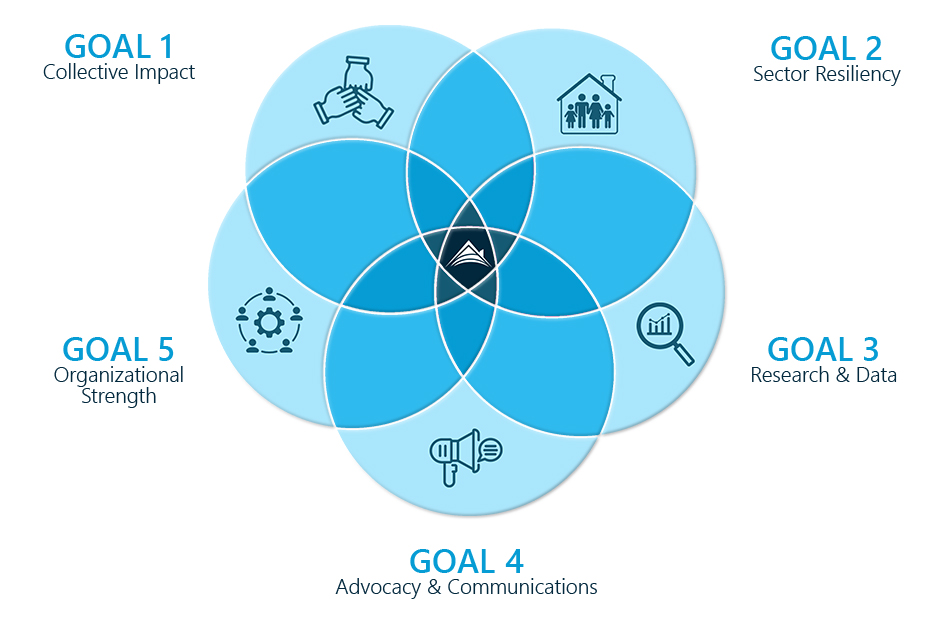AEHCR’s Five Strategic Goals Supporting Community Plan Outcomes
GOAL 1: Collective Impact
We align and focus the opportunities that arise from the intersection of our work in community through the development and strengthening of partnerships that result in system transformation, upstream and downstream.
GOAL 2: Sector Resiliency
We support our sector’s human beings to thrive in the service of our community by developing best-practices approaches that are human capital centric.
GOAL 3: Research & Data
We uphold the highest standards of research and data to support evidence-based decision-making at all levels.
GOAL 4: Advocacy & Communications
We amplify the voice of the sector to reach its functional-zero-by-2030 goal through the development and implementation of a sector-wide advocacy and communications plan.
GOAL 5: Organizational Strength
We continue to develop a GVCEH team that is adequately resourced to augment capacity that aligns and focuses on mission-critical actions that support the evolving needs of the sector.
